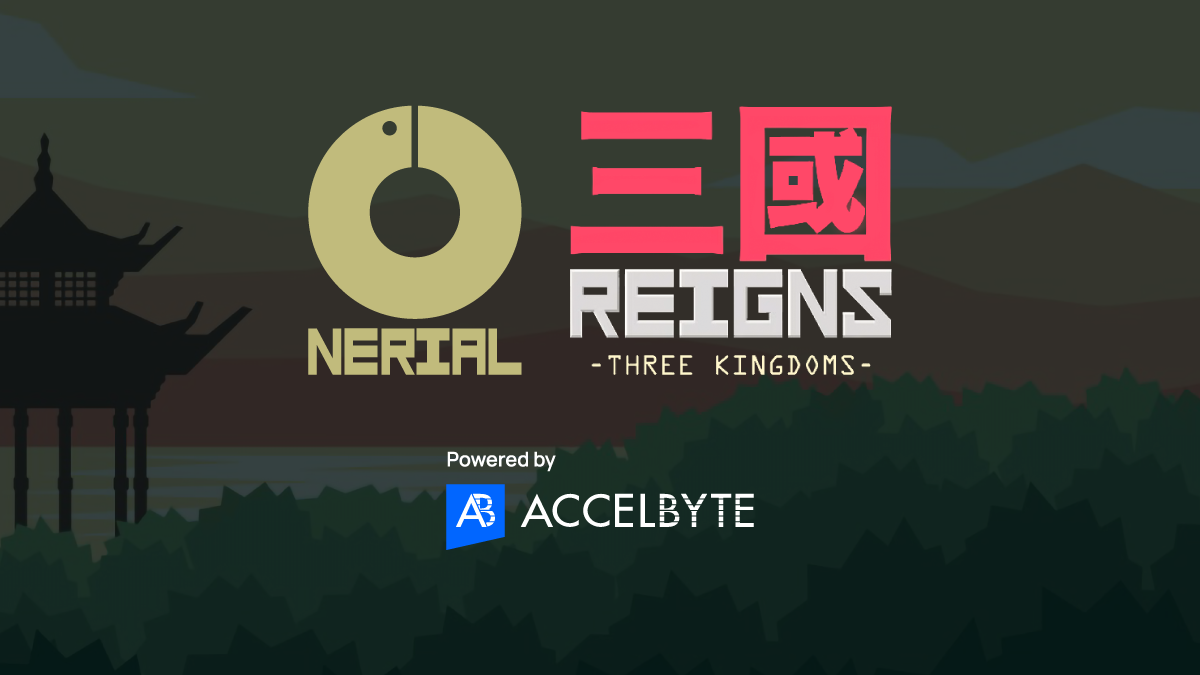
In July 2025, two ambitious multiplayer games launched globally just days apart: Wildgate by Moonshot Games (published by Dreamhaven) and SUPERVIVE by Theorycraft. Each game brought something completely different:
- Wildgate combined tactical FPS with spaceship combat in an extraction-style loop.
- SUPERVIVE redefined the hero-based MOBA with persistent progression and fast-paced teamplay.

In this blog, we’ll break down how we supported the launch of two high-concurrency, live-service titles in the same week with zero disruption, full flexibility, and the infrastructure needed to scale from day one.
The Challenge
Supporting any online game launch is a high-stakes moment. But supporting two vastly different, high-concurrency live-service games, each from a different studio with its own backend architecture, platform footprint, and gameplay raises the bar even higher.
Both Moonshot Games and Theorycraft came to AccelByte with clear goals:
- Smooth Launch, Scale dynamically under load
- Adapt to their specific game logic and progression systems
- Integrate with their pipelines, data layers, and platform requirements
- Be battle-tested with hands-on support who could work as an extension of their team

How We Supported Both Titles
While Wildgate and SUPERVIVE had very different gameplay models, they both needed a backend infrastructure that could flex to their vision. We partnered directly with their teams to ensure their backend worked the way their game needed it to: before, during, and after launch.
1. Scalable Multiplayer Architecture
At the core of both launches were AccelByte Gaming Services (AGS) modules like matchmaking, session management, and cross-platform lobbies laying the foundation for reliable multiplayer flows.
For Wildgate, this foundation enabled Moonshot Games to build a custom matchmaking system on top using AccelByte Extend. Instead of default logic, they implemented:
- Role-based team balancing
- Objective-aware placement
- Map-aware constraints for fair spawn zones
Our solutions architects worked closely with their team pre-launch to validate matchmaking logic at scale, simulate edge cases, and monitor Extend scripts in real time. During launch, AccelByte Multiplayer Servers handled global server orchestration, concurrency spikes and geographic routing seamlessly.
SUPERVIVE, by contrast, needed a backend that could keep up with fast-paced session turnover. With thousands of players queuing every few seconds, stability and latency were critical. AccelByte services integrated with their existing systems to keep queue times short and performance consistent during peak traffic.
In both cases, the platform delivered and everything ran smoothly aside from a few minor incidents.
2. Tailored LiveOps & Player Progression
Both games ran live service models, but with very different approaches.
SUPERVIVE introduced the Armory, a persistent progression system with hundreds of unlockables that refreshed each season. Theorycraft used AccelByte’s Entitlements, Player Inventory, and Season Pass services to manage it while keeping full control of game logic and UI. We helped them:
- Design a flexible schema for rotating rewards and in-game currencies
- Set up content toggles and rollout schedules via the Admin Portal
- Automate seasonal resets
Wildgate focused on match-based progression and replayability. Moonshot integrated Store, Friends, and Parties to power social play and cosmetics. We supported them in configuring platform-specific store logic, syncing entitlements in real-time, and integrating cleanly with their frontend systems.
3. Cross-Platform Identity and Account Linking
Wildgate launched across Steam, Xbox, and PlayStation, with full cross-platform play and progression. Using our Identity and OAuth integrations, players could link accounts, sync progress, and move seamlessly between platforms. We supported Moonshot by:
- Mapping identity flows across platforms
- Setting up login providers and fallback rules
- Testing edge cases like re-authentication and partial linking
SUPERVIVE used the same identity layer to manage secure logins, session tokens, and player authentication tied to matchmaking and telemetry, even without cross-platform support at launch.
In both cases, identity was key to delivering a smooth, connected player experience.
4. Pre-Launch Stability and Dev Support
Our work with both studios began long before launch. Our team worked hand-in-hand with both studios to anticipate edge cases, fine-tune performance, and make sure everything was ready when players hit "Play."
For Wildgate, we supported Moonshot Games with:
- Stress testing AMS orchestration across global regions
- Large-scale matchmaking simulations to validate custom logic
- Setting up real-time dashboards and alerts for backend monitoring
- QA handoff support and config validation leading into certification
- Plan and execute regional load tests across NA, EU, and APAC
For SUPERVIVE, we worked with Theorycraft to:
- Conduct final regression testing and dry-run simulations
- Stay embedded in their live ops team during launch for real-time monitoring and issue response
- While the platform ran smoothly, it wasn’t just the tech that made it work, it was the tight collaboration.
That seamless experience is not only a bare minimum for players but also directly drives higher player acquisition, better retention, and stronger monetization.
The Results
Two games. Two different genres. One shared outcome: a smooth, successful launch.


What This Proves
Whether you're building a tactical shooter or a fast-paced hero-based brawler, launching an online game at scale takes more than just infrastructure, it takes flexibility, reliability, and the right support. With AccelByte, both Moonshot and Theorycraft were able to focus on building great gameplay, not on the backend.
Featured Customer Stories
Featured Blog Posts
Unity Multiplay Is Transitioning: Practical Paths Forward for Studios Using Multiplay
AccelByte Gaming Services Is Now Modular
We Built an Open-Source Way to Connect Epic Online Services Anti-Cheat Services to Any Backend Architecture
Find a Backend Solution for Your Game!
Reach out to the AccelByte team to learn more.



